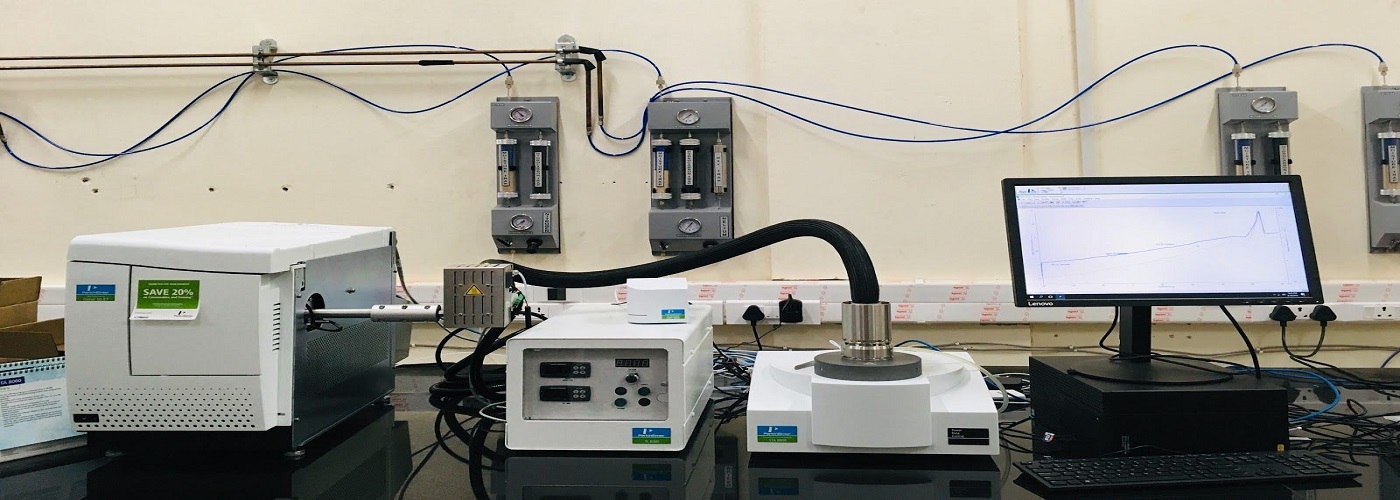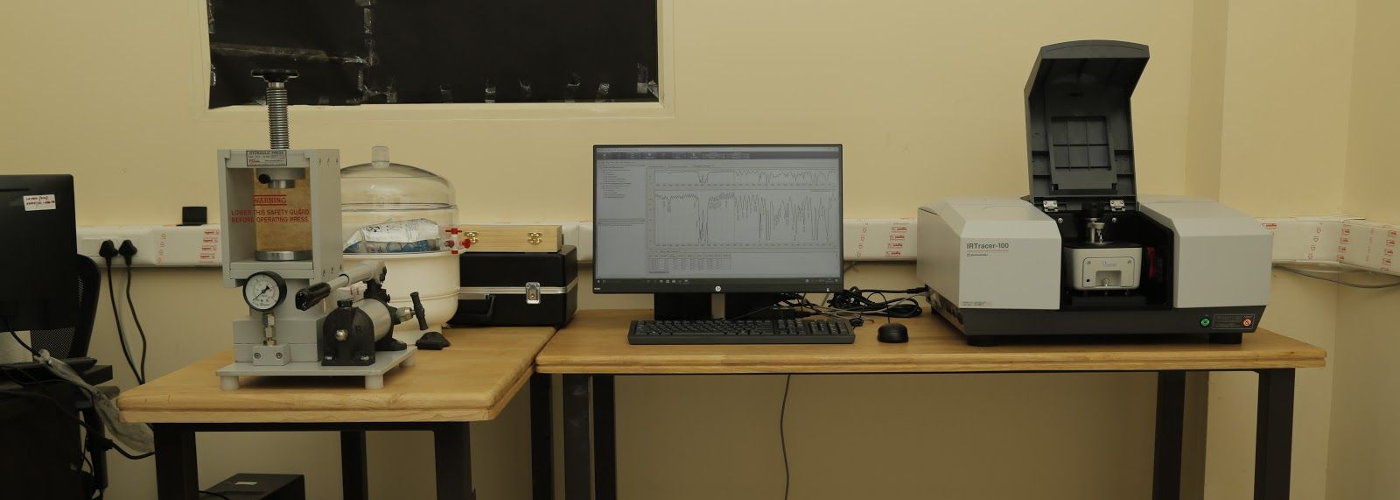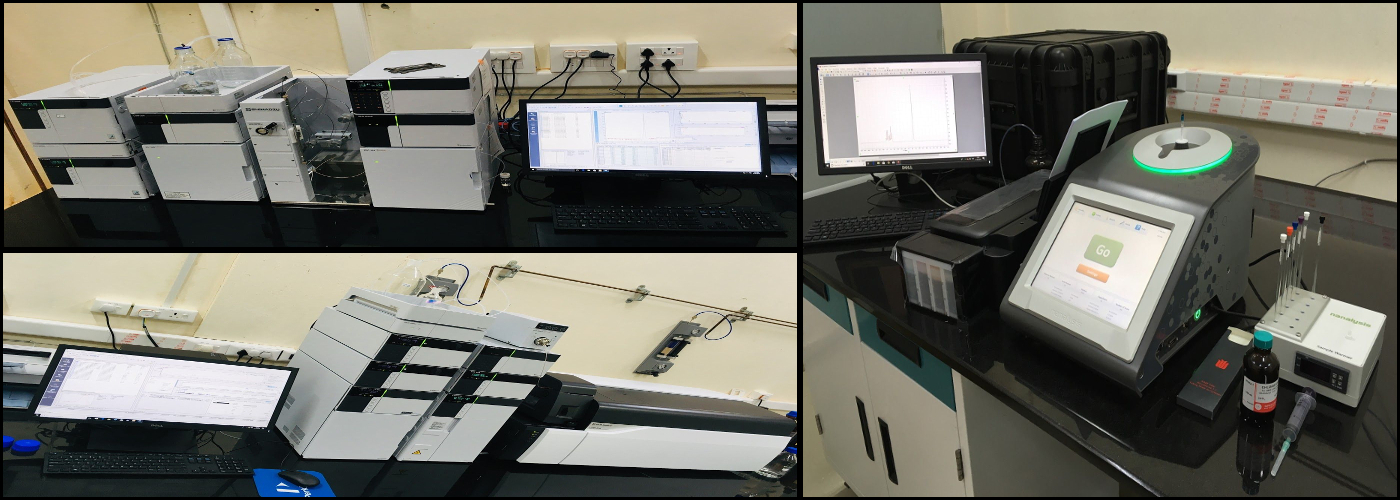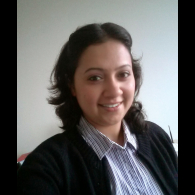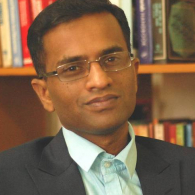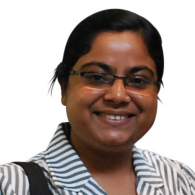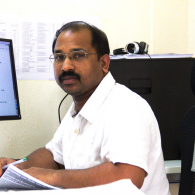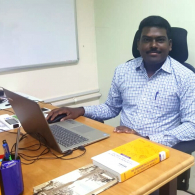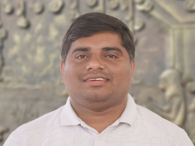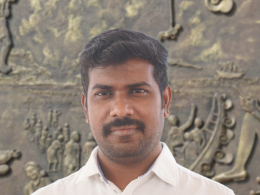Specializations
1. Theoretical and Computational Chemistry
The research includes the theoretical study of folding mechanisms and disulfide bond making/breaking mechanisms as those in specific proteins, Calculating and simulating the mechanochemical reactions, theoretical study of various stochastic processes in biology, proposing theoretical models for dynamics and reactivity of macromolecules present in a cell at the molecular level, using the simple tools of equilibrium and non-equilibrium statistical mechanics to name a few. Also of interest are, unusual types of diffusions, and diffusions driven by active noise.
Faculty Members
- Prof. K. L. Sebastian
- Dr. Debarati Chatterjee
- Dr. Padmesh A.
2. Supramolecular Material Chemistry and Inorganic Chemistry
We are interested in developing next-generation supramolecular materials with the multifunctional capability and customize their functional properties for versatile applications in biomedicine to environmental remediation. This can be achieved by employing the concept of “molecular self-assembly” which underlies the formation of several complex biological structures. An overall grand challenge is to exploit the new insights obtained from this research programme to answer “as-yet-unsolved research questions” and to probe some fundamental research questions in supramolecular chemistry. We foresee that the outcome of our research interest would lead to the development of novel materials and devices to support both the existing and emerging technologies, aimed to give a positive impact on the environment and quality of life.
Faculty Members
- Prof. K. V. Govindan Kutty
- Dr. Shanmugaraju S.
3. Design, Synthesis and Applications of organic materials
We are focused on the design, synthesis, and applications of novel classes of organic macromolecules. In contrast to the small molecules, macromolecules have some unique properties that make them perfect fit for various applications which are otherwise challenging to meet. Synthesis of macromolecules in its absolutely pure form is still difficult to achieve. While the current trend in this field is focused on solving this issue, immediate next goal is how to get a hand on controlling the properties of the macromolecules which is crucial for making them an efficient candidate for a given application. The fact that properties of a macromolecule are not predictable from the properties of the building blocks adds up another dimension to the complexity of this field. We aim to work on developing novel strategy to synthesize a new class of organic macromolecules and most importantly modulate their properties by the custom synthesis of building blocks and tuning organic reactions. The novelty of our system is that we can precisely control the arrangement of multiple functional groups that leads to its structure, properties, and function. Taking together Porel group is ambitious to develop a platform for the rapid and economic production of manmade materials with tunable properties for enormous applications from material to biomedical science. Currently we are focused on developing chemo-sensor for toxic analytes and antibacterial and anticancer drugs based on the newly developed organic materials.
Faculty Members
-
Dr. Mintu Porel
4. Materials for Environmental Sustainability
We develop new solid materials that can accelerate the rates of chemical reactions that have high relevance to clean environment. Applications can range from finding a suitable green industrial process or a new catalyst for vehicles, to affordable food packages, air and purifiers. The bottlenecks associated with materials are our research interests. For example, minimizing the heterogeneity in sites and developing catalysts with earth abundant elements are two important material-related goals that we work on. Our approach is to understand the role of chemical synthesis in tuning the surface chemistry and its consequent effects on catalysis.
Faculty Members
-
Dr. Dinesh Jagadeesan
5. Chemical Biology
Faculty Members
-
Dr. Sushabhan Sadhukhan
6. Biophysical Chemistry
Faculty Members
-
Dr. Supratik Sen Mojumdar
Research Facilities
Laboratories / Research Centres
- Chemistry Research Lab (Ahalia Campus)
- Lab 1 (Sharing with other faculty members)
- Central Instrumentation Facility
- High Performance Computing Center (HPC)
- Wet lab fully equipped for Inorganic Materials Synthesis
Research Equipments
- Chandra High performance computing cluster (HPC)
- A 48 core, 128 GB RAM Dell workstation
- Benchtop NMR (60 MHz)-Nanoanalysis - Nuclear Magnetic Resonance
- Fluorescence spectrometer
- HPLC - High Performance Liquid Chromatography
- LCMS - Liquid Chromatography Mass Spectrometry
- Block Heater
- Chemisorption
- Gas Chromatograph
- TGA-DTA-MS - Thermogravimetric Analysis - Differential Thermal Analysis- Mass Spectrometry
- FTIR with DRIFTS - Fourier Transform Infrared Spectroscopy

